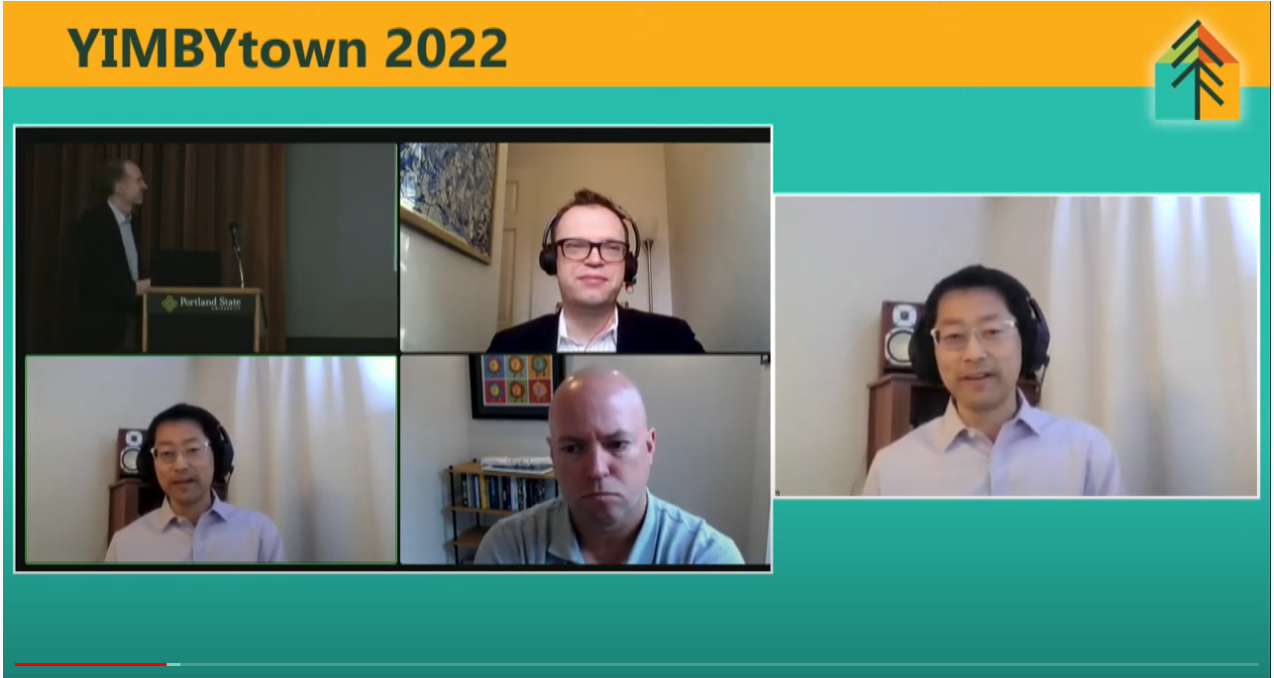This article is part of the series YIMBYtown 2022
The conversation shared below was part of the YIMBYtown 2022 conference, cohosted by Sightline Institute and Portland: Neighbors Welcome.*
Not every country suffers from acute housing shortages, spiraling prices, displacement, and the rest of the NIMBY nightmare. In this video, Robin Harding of the Financial Times in Tokyo and Jiro Yoshida of Penn State and the University of Tokyo argue that Japan’s centralization of land-use control has yielded the most affordable and stable home prices and rents in the industrial world.
From Auckland, Kirdan Lees of Sense Partners argues that strong local control in New Zealand has yielded some of the highest housing costs in the world, yet New Zealand has recently adopted one of the most sweeping upzones in the world.
Related:
- Yes, Other Countries Do Housing Better, Case 1: Japan
Political lessons from ten nations about building affordable, low-carbon neighborhoods. - Yes, Other Countries Are Making More Progress on Housing, Case 4: The United Kingdom and New Zealand
Bold strokes against residential lockdown.
*YIMBYtown 2022 occurred April 11–13 in Portland, Oregon, the fourth annual gathering (after some COVID delays) of “Yes in My Back Yard” (YIMBY) community leaders, organizers, planners, policymakers, educators, and housing providers eager to share resources and strategies for building more affordable, sustainable, and equitable communities.

